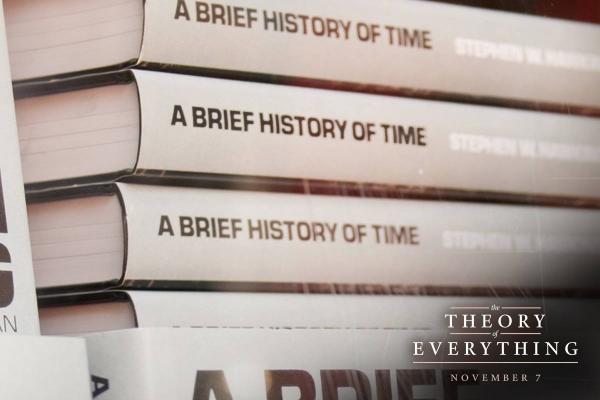The new Stephen Hawking biopic The Theory of Everything, presents the relationship between the famed physicist and his first wife, Jane, in beautiful display. Screenwriter Anthony McCarten described the underlying theme of the film such:
“If all of us were some kind of cosmic accident, what chance love? That’s the point at which science breaks down, and something else exists.”
That rift between the proofs and facts that drive Hawking (played by Eddie Redmayne) and the “something else” represented by the inspiring story at the film's center is one that reflects a larger conversation about faith, science, and the unknown that feels like it’s been a part of culture from the beginning of time (all puns aside). It’s unfortunate, then, that the film doesn’t take the opportunity to explore those discussions beyond the surface level.
The Theory of Everything , based on Jane Hawking’s memoir Traveling to Infinity: My Life with Stephen, focuses less on the scientific breakthroughs that characterized Hawking’s stellar career. Instead it tells the story of his courtship and marriage to Jane (Felicity Jones), a fellow Cambridge student, Hawking’s physical decline due to ALS, and the couple’s resulting trials and victories.
It’s a gorgeous movie, with an excellent visual sense courtesy of director James Marsh (best known for the Oscar-winning documentary Man on Wire). Redmayne’s performance as Hawking is also extremely dedicated. His preparations included meetings with ALS patients and painstaking research with an ALS expert on what Hawking’s decline would have looked like, and the results are impressive indeed.
Depicting a couple like this, however, requires two halves, and it’s in Jane that the film disappoints. Jones is sweetly determined as Hawking’s incredibly resilient wife, but the film never presents her as much other than saintly and dedicated to her husband’s work. And while it’s suggested that this may be because of her faith in God, the couple’s discussions relating to the topic never seem to advance beyond her faint wish that Stephen would acknowledge a divine existence.
It’s a missed opportunity for a conversation that applies directly to the often-tense dialogue between religion and science today, and the questions, arguments, and compromises that this dialogue inevitably brings up. The questions that drove Hawking to groundbreaking work — the nature of the universe, its origin, an answer to the question of existence itself — are questions that fascinate believers and non-believers of all stripes. There are numerous chances for the film to get into thoughtful debates about why and how we seek these answers, or why Hawking (at least as a character, if not as a person) remains resistant to the idea of God, but none of them result in more than one or two short statements and retorts.
It may be that McCarten, Marsh, and company didn’t want to ruffle any feathers or take too many liberties with the source material. It may be that they didn’t want to make the film seem preachy. But by avoiding taking any risks with the story, the characters, or the ideologies that drive them, The Theory of Everything ends up being a pretty film, but not much else. McCarten may have wanted to write a drama attempting to build bridges in the ongoing dialogue between faith and science, but the result is a softball effort that’s simply content to acknowledge the conversation exists.
Abby Olcese is the Advertising Assistant for Sojourners.
Got something to say about what you're reading? We value your feedback!
